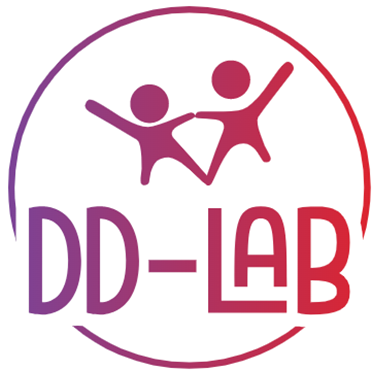Math & Emotions
Research Area
Mathematical achievement and emotional factors
”Life is a math equation. In order to gain the most, you have to know how to convert negatives into positives
Anonymus

The DDlab group investigates mathematical achievement and its interplay with emotional and motivational factors that influence students’ academic success. A core objective of our work is to understand how these factors interact to shape learning outcomes, with a particular focus on individual differences and the mechanisms underlying these associations.
Our current research activities focus on different range of topic:
- Mathematical Achievement: we are developing and testing a digital battery to assess mathematical abilities in both typical and atypical populations aged 8 to 13 years. The battery includes various mathematical tasks designed to evaluate both basic numerical skills (e.g., number facts, number dictation) and procedural abilities (e.g., mental, written and approximate calculation).
- Emotions and Motivation: we study the relationships between mathematical performance and various emotional and motivational factors in typically developing primary and middle school students. We aim to explore the protective role of positive factors, such as interest, perceived value, and perceived competence toward academic tasks, as well as the negative impact of risk factors like mathematical anxiety and test anxiety.
- Cognitive Emotion Regulation Strategies: we investigate the effectiveness of a brief classroom-based intervention focused on an adaptive cognitive emotion regulation strategy in middle school students. This line explores the potential benefits of positive stress reappraisal in reducing emotional-cognitive responses (e.g., anxiety) and supporting mathematical performance.
- Educational Strategies: we explore the effectiveness of a brief educational intervention for middle school students, testing different types of feedback – both focused on mathematical performance and incorporating motivational content – to better support mathematical achievement, mitigate negative emotions, and strengthen positive attitudes.
By pursuing these research lines, DDlab aims to deepen the understanding of the psychological mechanisms involved in academic achievement and to share evidence-based strategies for educational assessment and intervention, with the goal of better supporting students’ learning and development.
Publications
Masi, A., Toffalini, E., & Caviola, S. (2025).
Math performance and math attitudes: Unpacking the role of feedback [Preregistration]. OSF.
Caviola, S., Toffalini, E., & Masi, A. (2024).
Is math anxiety all doom and gloom? The effects of cognitive stress reappraisal in middle school students [Preregistration]. OSF.
Szucs, D., & Mammarella, I. C. (2024).
A biopsychological–social view of mathematical development. Current Opinion in Behavioral Sciences, 55, 101332.
Mammarella, I. C., Caviola, S., Rossi, S., Patron, E., & Palomba, D. (2023).
Multidimensional components of (state) mathematics anxiety: Behavioral, cognitive, emotional, and psychophysiological consequences. Annals of the New York Academy of Sciences, 1523(1), 91-103.
Caviola, S., Mammarella, I. C., & Szűcs, D. (2022).
Individual differences in mathematical abilities and competencies. In Handbook of Cognitive Mathematics (pp. 317-348). Cham: Springer International Publishing.
Caviola, S., Toffalini, E., Giofrè, D., Ruiz, J. M., Szűcs, D., & Mammarella, I. C. (2022).
Math performance and academic anxiety forms, from sociodemographic to cognitive aspects: A meta-analysis on 906,311 participants. Educational Psychology Review, 1-37.
Caviola, S., Visentin, C., Borella, E., Mammarella, I., & Prodi, N. (2021).
Out of the noise: Effects of sound environment on maths performance in middle-school students. Journal of Environmental Psychology, 73, 101552.
Caviola, S., Colling, L. J., Mammarella, I. C., & Szűcs, D. (2020).
Predictors of mathematics in primary school: Magnitude comparison, verbal and spatial working memory measures. Developmental science, 23(6), e12957.



